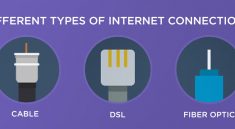With many people plugged out of all time, I frequently question what effect technologies are getting on the kids. Some say technologies are another useful learning tool that’s making our children smarter and a few express it is getting no important effect whatsoever. Still, others suggest that technology me is encouraging social isolation, growing attentional problems, encouraging unhealthy habits, and eventually altering the west and exactly how humans interact. While there is not a causal relationship between technology use and human development, I’m sure a few of the correlations are sufficiently strong to inspire you to definitely limit your kid’s screen time.
Is television really that dangerous to kids? With respect to the show and time period of watching, yes. Scientific study has discovered that contact with programs with fast edits and scene cuts that flash unrealistically in all directions are connected with the introduction of attentional problems in kids. Because the brain becomes overwhelmed with altering stimuli, it stops taking care of anyone factor and starts zoning out. Over consumption in these frenetic programs provides the brain more practice passively accepting information without deeply processing it. However, not every programs can be harmful. Kids who watch slow paced tv programs like Sesame Street are more unlikely to build up attentional problems as kids who watch shows such as the Power Puff Women or Johnny Neutron. Educational shows are slow paced with less stimuli on screen which provides children the chance to rehearse taking care of information. Children may then practice making connections between new and past understanding, manipulating information in working memory, and problem-solving. Conclusively, a great guideline would be to limit television watching for an hour to 2 hrs each day, and look out for any glossy-eyed transfixed gaze in your child’s face. This can be a sure sign that their brain has stopped focusing which is certainly time for you to turn off the tube in order to start thinking, creating, and making sense from things again (all actions that grow instead of pacify the mind).
Whenever you do turn off the tube, expect for those who have a melt lower to deal with. Technologies have an addictive quality since it consistently activates the discharge of neurotransmitters which are connected with pleasure and reward. There has been installments of addictions to technology in youngsters as youthful as four-years-old. Lately in great britan, a four-year-old girl was put in intensive rehabilitation therapy to have an iPad addiction! I am sure you are aware how rewarding it’s to sign onto Facebook and find out that red notification towards the top of the screen, or maybe more directly how rewarding doing offers on your pc is often as you accumulate more “accomplishments.” I’m responsible for obsessive compulsively checking my Facebook, email, and blog during the day. The most popular response to this problems is, “All things moderation.” As I agree, moderation might be hard for children to attain they do not hold the skills for self-discipline and can frequently go ahead and take easy route otherwise directed by a grownup. According to a different study through the Kaiser Family Foundation, children spend about 5 hrs watching tv and films, 3 hrs on the web, 1 1/2 hrs texting on the telephone, along with a 1/2 hour speaking on the telephone every day. That’s almost 75 hrs of technology use every week, and i’m sure these answers are mediated by parental controls and interventions. Imagine just how much technology children use when left to their personal defenses! Inside a recent Huffington Publish article, Dr. Ray Rosen summed up well, “… we have seen what goes on if you do not limit these active participation. The kid remains reinforced within the highly engaging e-world, and much more mundane worlds, for example having fun with toys or watching television, pale compared.” How’s it going ever getting your son or daughter to see a black and white-colored boring old book once they can use a flashy, rewarding iPad rather? Children typically spend 38 minutes or fewer every day studying. Would you visit a priority problem here?



